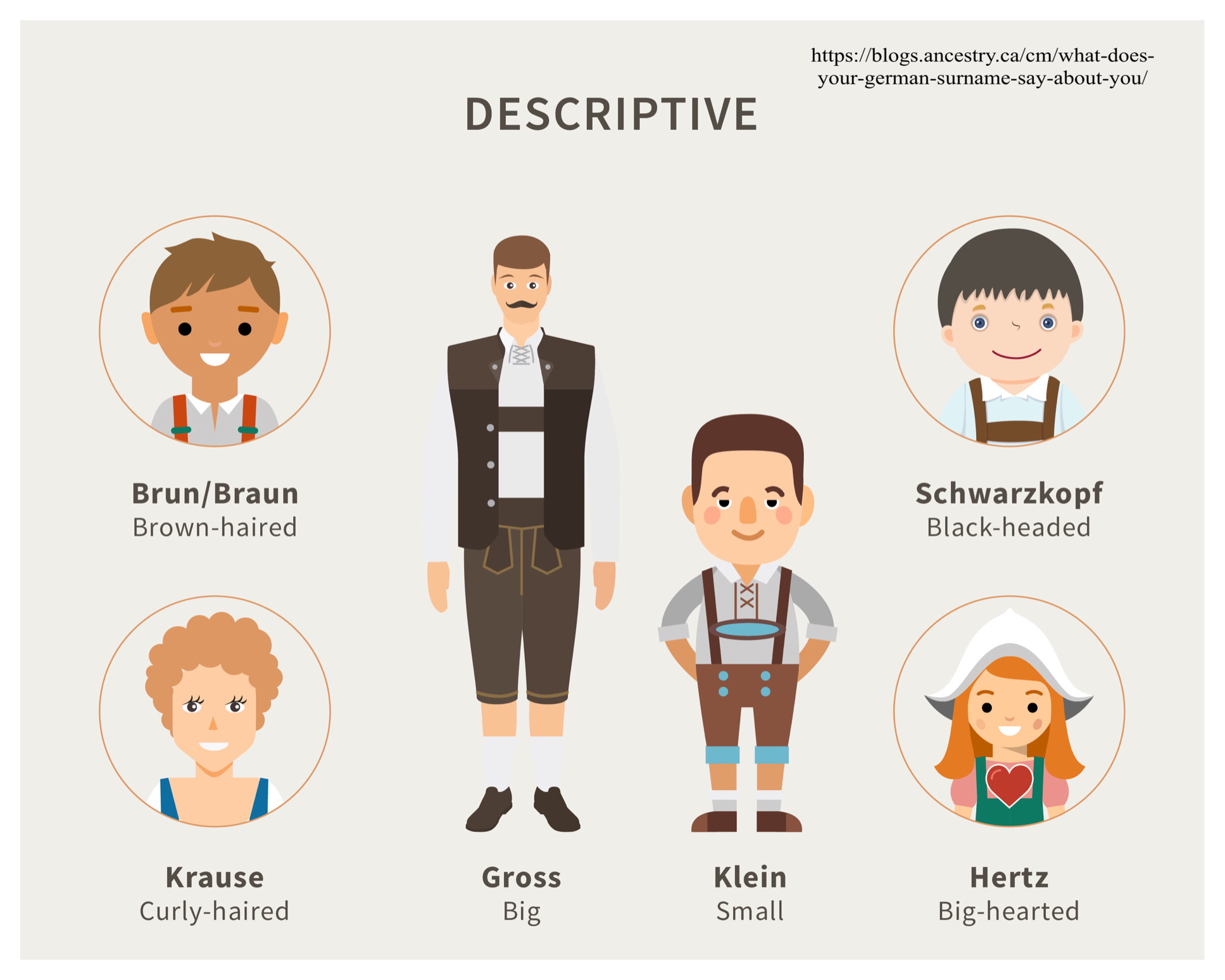Do you have German ancestry? What do you know about the surnames in your family tree? Most commoners obtained their surnames around the 1300’s, the Middle Ages, and the surnames came from occupations, geography, characteristics or are often patronymic. In most cases, surnames stayed from generation to generation. Below we will discuss where different surnames came from.
Names that end in er or mann are the most common endings. They belong to occupational surnames.
Do you have family names that end in er or mann? These are the most common endings to names and they belong to occupational surnames. These endings make it very hard to trace. It is kind of like John Smith in the United States. Some examples of these names you would find in the United States now are Becker (baker), Graver/Graber (grave digger), Forester (forester), etc.
Landmarks were used for fmaily names, too.
Next, were any of your family maybe named after a landmark, the family lived by like a river, or mountain like Springborn (spring) or a Busch (bush). Maybe a Marburger who was named after the city of Marburg or Schweitzer that came from someone who lived in Switzerland. However, some German names had local characteristics like in southern Germany, Austria and Switzerland, they had diminutive endings like l, el, erl, le and li.
Characteristic names have a very broad range and can be nice or not so flattering. So an ancestor might have been big hearted, and they took the last name Hertz. Some more examples of these types of names are Lang (long), Weiss (white), Altmann (old man), Braun (brown), Klein (small) and Schwarzkopf (black headed).
Patronymic surnames were similar to those used in Scandinavia.
Finally, Germany also has many Patronymic surnames. These are names with some form of sohn (son) at the end. Some examples are Hansen, Jacobsohn, Petersohn, etc. Yet, to add some fun, some places in Germany had changing patronymic names like Scandinavia. So Jacob had a son named Peter, so Peter’s last name is Jacobsohn. Then Peter has a son Johannes and his last name would be Johannes Petersohn even though his fathers last name is Jaconsohn. Fun trying to hunt that all down!
It is fun to learn about your German surnames. Have you ever tried to see if you could get far enough back in your genealogy to figure out where the name came from? Of course there possibly could have been spelling changes over time. I know my German ancestors' names were spelled one way in Germany, one way when they first got to the US, and then it changed again later. Though it can be tricky, it is still fun to hunt for the names and see if they fit into a name category.
We can help
If you need any help finding your ancestors, just let us know.


